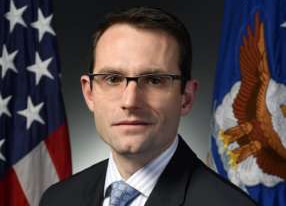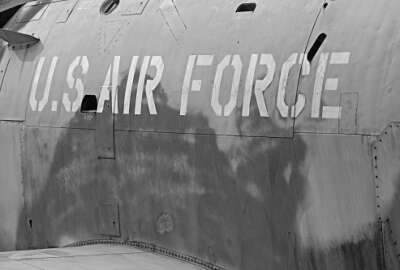
Software issues hurting Air Force sustainment, logistics
Software acquisition issues are hurting the Air Force's ability to move into the future, and one official is highlighting the service’s weaknesses in software...
As the Air Force continues its shift to deal with near peer adversaries, one official is highlighting the service’s weaknesses with software, especially around hiring and intellectual property.
Speaking at a May 23 Air Force Association event in Arlington, Virginia , Lt. Gen. Lee Levy, the Air Force Sustainment Center commander, said software is becoming increasingly important for weapons systems, but the service still has work to do to make its software workable for today and the future.
“When you take your [car] into the dealer, what’s the first thing they do?” Levy said, contrasting cars from the 1970s to today’s cars. “Plug it in right? There’s somebody who gets a computer. He or she plugs it in, they run some diagnostics algorithms, in some cases they can fix it by reprogramming your car, sometimes it tells them exactly what part they need to get. That’s the kind of transformation we’ve got to migrate to in terms of logistics and sustainment.”
One of the most prominent issues the Air Force has with software is the speed of acquisition. While companies like Apple or Google put out software patches and updates regularly, the Defense Department still expects software that takes years to develop and is exquisite in nature.
That’s something that’s not sustainable for the future of Air Force software, Levy said.
Levy’s point echoes what Air Force acquisition chief Will Roper said last month about software being the Air Force’s biggest acquisition challenge.
“We’re just not accustomed, as acquisition professionals, to having deliverables on a monthly basis or on a weekly basis. We’re not accustomed to testing things, to operationally certifying things. You could imagine in a future war where we are changing software on a daily basis as a necessary factor for winning,” Roper said.
Another issue revolves around the intellectual property of software and the Air Force’s negotiations with industry.
Levy said the first thing the Air Force needs to do is change how it acquires intellectual property.
“We buy intellectual property … in discrete segments based on a [program executive officer] and a program manager. If you said, ‘Hey Air Force, what’s your intellectual property landscape?’ My first question back to you will be, ‘Which platform are you talking about?’ because what I did on the F-16 doesn’t look like what I did on the B-2 or the F-35. They’re all different. They’re all pointed solutions,” Levy said.
The Air Force is in a constant arm wrestle with industry over how much of the intellectual property the military can own.
“When we find ourselves in protracted legal battles time and time again over this little slice of intellectual property, it’s very distracting. It’s very costly to both industry and the government. More importantly, it robs us of something you’ll never get back, time,” Levy said.
The Air Force and Defense Department currently have initiatives to improve software in-house.
Before leaving office, former Air Force Secretary Deborah Lee James instituted the Air Force Digital Service.
The Digital Service is helping with the development wavering GPS Operational Control Segment, a program that went more than 25 percent over its cost estimates. It’s also working on the Air Operations Center Weapons Center 10.2, which is dealing with surging costs.
The Digital Service is working to fix software development and cybersecurity issues before future development in the programs, said Lt. Gen. Arnold Bunch, military deputy for the Air Force assistant acquisition secretary. Both programs are heavily reliant on software.
Levy said his office is leveraging the office and found cost savings in there.
The Defense Department as a whole is also recognizing software acquisition as an issue. The new DoD Acquisition and Sustainment Office, headed by Ellen Lord, appointed its first software czar on April 16.
The job, filled by Jeff Boleng, is responsible for “providing strategic focus and overall policy guidance on all matters for defense software acquisition,” stated an April 16 release from the Pentagon.
“Boleng will formulate the Department’s software acquisition strategy, advise Department leadership on latest best practices in commercial software development, support the enterprise to build a team of top-tier software engineers, and work to develop modern software skills in the acquisition workforce,” the release states.
Lord said back in February that she would appoint three major special assistants, one of which will oversee software.
“As we reorganize the way we do business the thread that runs through all of our programs and all that we do is software and I believe that we need to catch up with the private sector and make sure we are using contemporary software development processes,” Lord said.
Copyright © 2025 Federal News Network. All rights reserved. This website is not intended for users located within the European Economic Area.
Scott Maucione is a defense reporter for Federal News Network and reports on human capital, workforce and the Defense Department at-large.
Follow @smaucioneWFED





